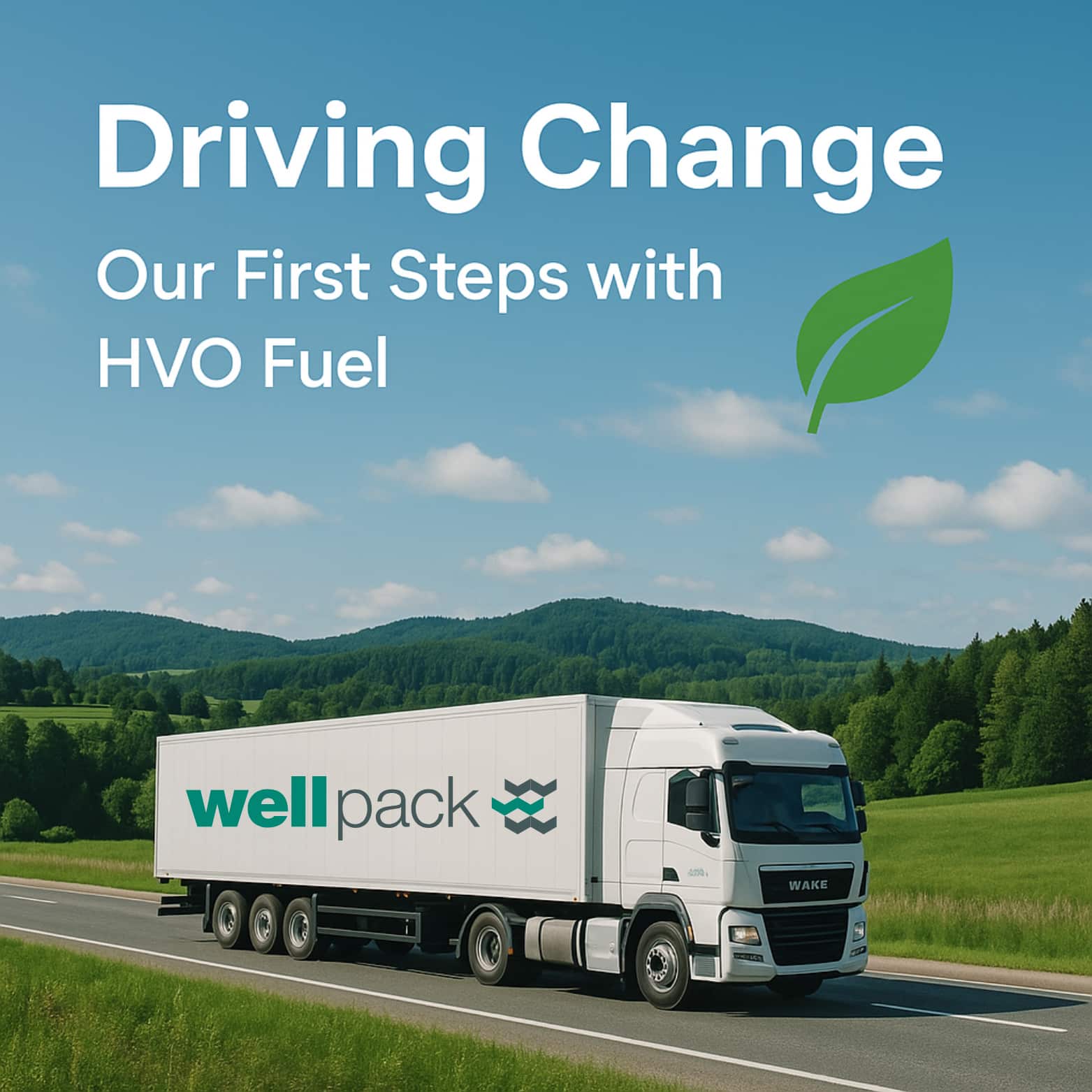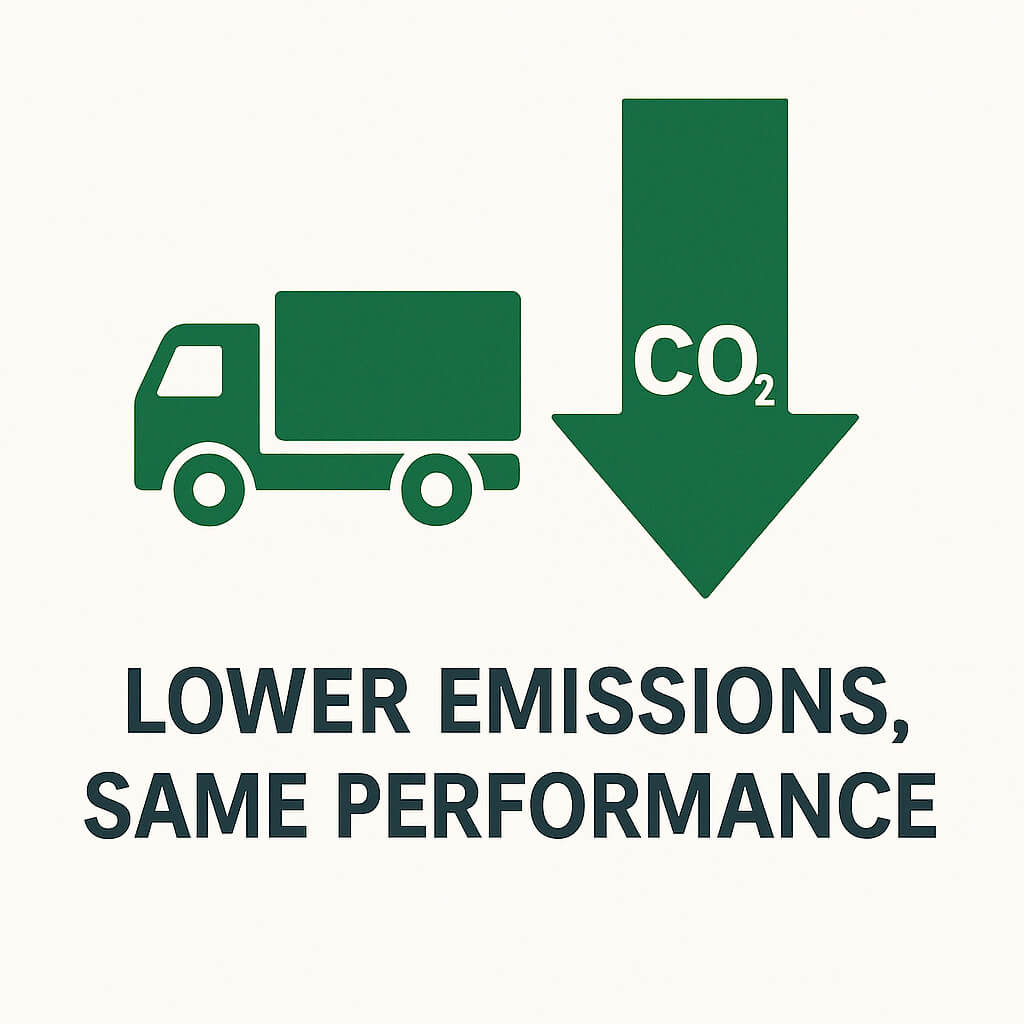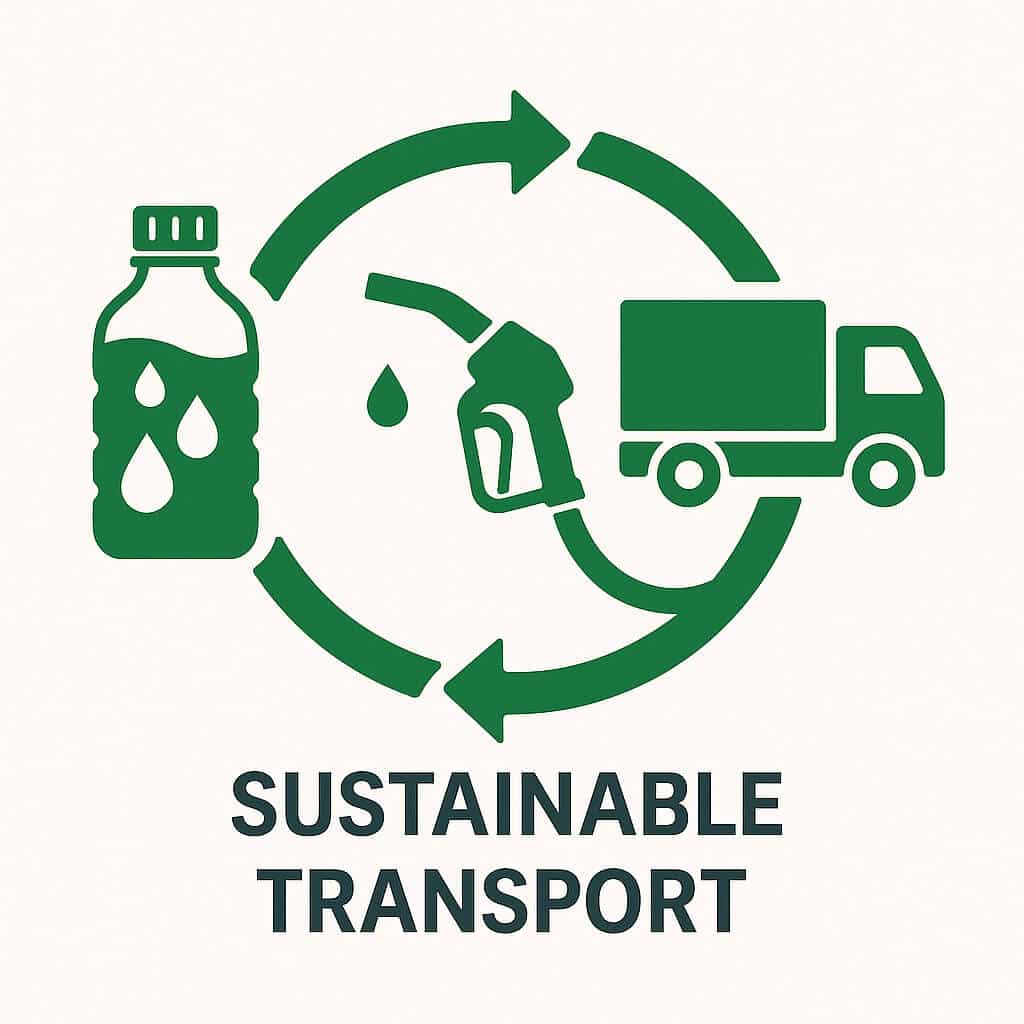

Driving Change: Well Pack’s First Steps with HVO Fuel
At Well Pack, we are constantly looking for ways to reduce the environmental impact of our logistics operations – without compromising reliability, performance, or scale. In April 2025, we took another important step forward: we began testing HVO fuel (Hydrotreated Vegetable Oil) as a low-emission diesel alternative in selected parts of our fleet.
Why fuel matters in logistics
Transport is one of the largest contributors to global CO₂ emissions. For companies like Well Pack, which operate in multiple countries with hundreds of daily routes, fuel efficiency and sustainable transport fuel are not only economic issues – they are climate challenges. That’s why we’re committed to exploring renewable diesel and green logistics solutions that can reduce our carbon footprint while maintaining operational performance.


What is HVO?
HVO (Hydrotreated Vegetable Oil) is a synthetic renewable diesel produced from waste-based feedstocks such as used cooking oil, animal fats, or other biomass waste materials. It is chemically similar to fossil diesel but offers several environmental and operational benefits:
-
Up to 90% lower CO₂ emissions compared to conventional diesel
-
Cleaner combustion with reduced local air pollutants
-
Fully compatible with most existing diesel engines (drop-in solution)
-
No modifications needed to vehicles or fueling infrastructure
Thanks to these advantages, HVO fuel is increasingly recognized as one of the most practical short-term biofuel solutions to decarbonize road transport – especially for heavy-duty commercial fleets.
Why certification matters
We know that not all HVO fuels are created equal. While the fuel itself can be clean, the sustainability of the supply chain is crucial. Some producers use palm oil or import feedstocks across continents – practices that reduce environmental benefits and raise concerns about greenwashing.
At Well Pack, we are committed to full transparency. That’s why the HVO fuel we use is:
-
Certified under the ISCC EU sustainability standard
-
Made exclusively from waste-based renewable feedstocks, in line with EU Directive 2018/2001 (RED II)
-
Sourced locally to minimize additional transport emissions
The trial and what we’re learning
We launched the HVO fuel pilot in Austria, where we are also testing other innovations in sustainable logistics such as solar-powered cleaning lines, AI-based fleet tracking, and cross-docking systems. The fuel is currently being used on selected routes to monitor:
-
Fuel consumption and cost efficiency
-
Long-term engine performance
-
CO₂ emission reductions compared to baseline routes
-
Feedback from drivers and technicians
Early results are promising: emissions are significantly reduced, refueling is seamless, and operational changes are minimal.
Part of a bigger sustainability strategy
This trial is not an isolated project. It’s part of our broader goal to position Well Pack as a leader in circular and low-impact logistics. From crate washing and reusable packaging to smart routing and chemical footprint reduction, we are redesigning every part of our system for a more sustainable future.
The adoption of certified HVO fuel is included in our submission for the 2025 Reuters Global Sustainability Awards – showcasing not only our innovation but also our accountability and ability to scale sustainable transport solutions.

What’s next?
We plan to gradually expand the use of certified renewable HVO to more routes and regions, depending on infrastructure and availability. Meanwhile, we continue evaluating other alternative fuels and hybrid technologies.
Because true sustainability is not about single solutions – it’s about building resilient logistics systems that perform, adapt, and earn trust.
Well Pack is driving the future of logistics – with transparency, innovation, and measurable climate action. Follow us for updates on how we clean, move, and rethink packaging across Europe.
Explore our Transport & Distribution Services